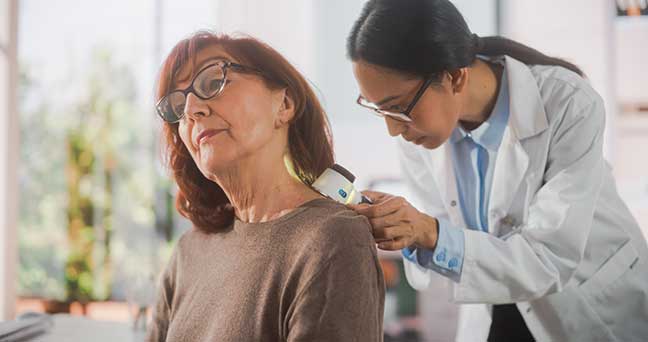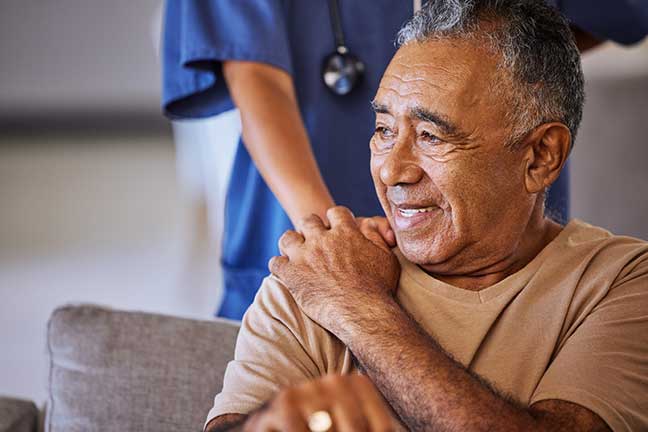Cancer, while being a significant health challenge, also brings with it a considerable financial burden. For those residing in Oklahoma, navigating the landscape of financial assistance for cancer treatment can be daunting.
This comprehensive guide is designed to illuminate the path for cancer patients in Oklahoma, providing insights into federal programs, state assistance, local and non-profit organizations, and the benefits available through Medicare and Medicaid.
What Federal Programs Support Cancer Patients?
Medicare Benefits for Cancer Patients
Medicare is a pivotal federal program offering substantial support. It encompasses various parts, including Part A (Hospital Insurance) and Part B (Medical Insurance), which cover hospital stays, some home health care, doctor’s services, and outpatient care. Additionally, Part D caters to prescription drug coverage, vital for cancer medications.
To apply for Medicare, patients can visit the Social Security Administration website or your trusted licensed health insurance agent.
Medicaid and Cancer Treatment in Oklahoma
Medicaid in Oklahoma extends a helping hand by covering costs for low-income individuals, including cancer patients. This program is especially crucial for those needing long-term care or specialized treatments not fully covered by Medicare.
Eligibility depends on income and family size, and applications can be submitted through the Oklahoma Health Care Authority.
Affordable Care Act (ACA) Health Insurance Plans
The Affordable Care Act (ACA), commonly known as Obamacare, health insurance plans are designed to provide comprehensive coverage, including essential benefits critical for cancer care. Here’s how these plans help manage the costs of cancer treatments:
Coverage of Essential Health Benefits
ACA plans are required to cover a set of essential health benefits. These include outpatient care, emergency services, hospitalization, prescription drugs, lab tests, preventive services, and chronic disease management. For cancer patients, this means that key aspects of their treatment – from chemotherapy and radiation to necessary medications and follow-up care – are covered.
Pre-Existing Conditions
One of the cornerstones of the ACA is its provision for pre-existing conditions. This is particularly beneficial for cancer patients, as insurance plans under the ACA cannot deny coverage or charge higher premiums based on a cancer diagnosis or any other pre-existing condition. This ensures that individuals diagnosed with cancer have access to insurance without facing discrimination.
Subsidies to Lower Costs
The ACA offers subsidies to lower the cost of premiums for low- and middle-income individuals and families. These subsidies can make health insurance and, consequently, cancer treatment more affordable. There are also cost-sharing reductions that lower the out-of-pocket costs for services like hospital visits or lab tests.

State Programs in Oklahoma
Oklahoma Health Care Authority (OHCA)
The Oklahoma Health Care Authority provides health benefits, including cancer treatment coverage, to eligible residents.
Oklahoma Cares – Breast and Cervical Cancer Treatment Program from the OHCA for those who don’t qualify for Soonercare. Contact the Oklahoma State Dept. of Health at (866) 550-5585
Oklahoma Comprehensive Cancer Control Program
This state program aims to reduce the burden of cancer through prevention, early detection, and improved treatment. It supports not just the patients but also caregivers and healthcare providers.
Phone: (405) 426-8300
Fax: (405) 900-7610
Email: Center@health.ok.gov
Local and Non-Profit Organizations
American Cancer Society in Oklahoma
The American Cancer Society offers a variety of services, including transportation assistance, lodging during treatment, health education and emotional support for those fighting cancer.
ACS not only provides support during cancer treatment, it also provides a cancer survivors network board to share stories and find those with similar interests.
Patients can access these services by contacting their local ACS office.
Oklahoma Project Woman
Focused on breast cancer, Oklahoma Project Woman provides free mammograms, diagnostic procedures, and surgical services for uninsured or underinsured women.
The Leukemia & Lymphoma Society
This organization offers financial assistance and support to patients with blood cancers, providing help with treatment-related expenses.
Community Organizations and Resources
Local support groups and community centers play a pivotal role in providing emotional and financial support. They offer programs like housing assistance and transportation services, crucial for patients undergoing treatment.
FindHelp.org
FindHelp.org provides a search database for government and non-profit organizations providing financial assistance, food, transportation or other free or low-cost quality medical care.

Additional Financial Assistance Programs
For cancer patients, navigating the financial complexities of treatment can be as challenging as managing the illness itself. Fortunately, there are several assistance programs designed to alleviate this burden.
Often, those who qualify for Medicaid due to reduced income or other factors may find they are automatically eligible for a range of other government programs that provide monthly financial assistance. These include TANF, SNAP, HUD, LIHEAP, as well as Lifeline and the Affordable Connectivity Program (ACP) from EASY Wireless.
Temporary Assistance for Needy Families (TANF)
TANF provides temporary financial aid to low-income families. This assistance can be particularly helpful for cancer patients who have had to reduce their working hours or stop working altogether. TANF funds can be used to cover basic living expenses, easing some of the financial pressures during treatment.
Supplemental Nutrition Assistance Program (SNAP)
SNAP, formerly known as food stamps, offers nutrition assistance to millions of eligible, low-income individuals and families. For cancer patients, especially those facing increased medical expenses, SNAP can help ensure access to nutritious food, which is vital for health and well-being during treatment.
Housing and Urban Development (HUD)
HUD provides housing assistance, which can be crucial for cancer patients struggling with housing costs. Programs under HUD can offer affordable housing options or financial aid to help cover rent, ensuring patients have a stable and safe place to live while undergoing treatment.
Low Income Home Energy Assistance Program (LIHEAP)
LIHEAP assists with home energy bills, energy crises, weatherization, and energy-related minor home repairs. This program can be particularly beneficial for cancer patients who spend more time at home and may have higher energy needs due to their medical equipment or increased heating and cooling requirements.
Lifeline and ACP Programs from EASY Wireless
For cancer patients, staying connected with healthcare providers, family, and support networks is crucial. This is where the Lifeline and ACP programs come into play. EASY Wireless, participating in these programs, offers a FREE Smartphone and FREE monthly talk, text, and data.
Benefits of Free Cell Phone Service to Cancer Patients
- Constant Access to Healthcare Providers: Immediate communication with doctors and access to telehealth services.
- Emergency Services: Quick and easy access to emergency services if needed.
- Support Network Connectivity: Ability to stay in touch with friends, family, and support groups, which is essential for emotional and mental well-being.
- Access to Information: Easier to research treatment options, access patient portals, and stay informed about their health.
For cancer patients undergoing treatment, these additional financial assistance programs can provide a much-needed safety net. They offer support in various aspects of daily life, from nutrition and housing to staying connected through services provided by EASY Wireless.
By leveraging these programs, patients can focus more on their health and less on the financial strain of their circumstances.
Click here to sign up for Your Lifeline and ACP Benefits from EASY Wireless.

Don’t Go It Alone
The journey through cancer treatment in Oklahoma doesn’t have to be a solitary or financially overwhelming one. With a range of federal, state, and local resources available, financial assistance is within reach.
It’s important to remember that each program has its own set of guidelines and application processes, and seeking assistance early can make a significant difference. As you navigate this challenging time, know that there are numerous avenues of support waiting to help you through.


